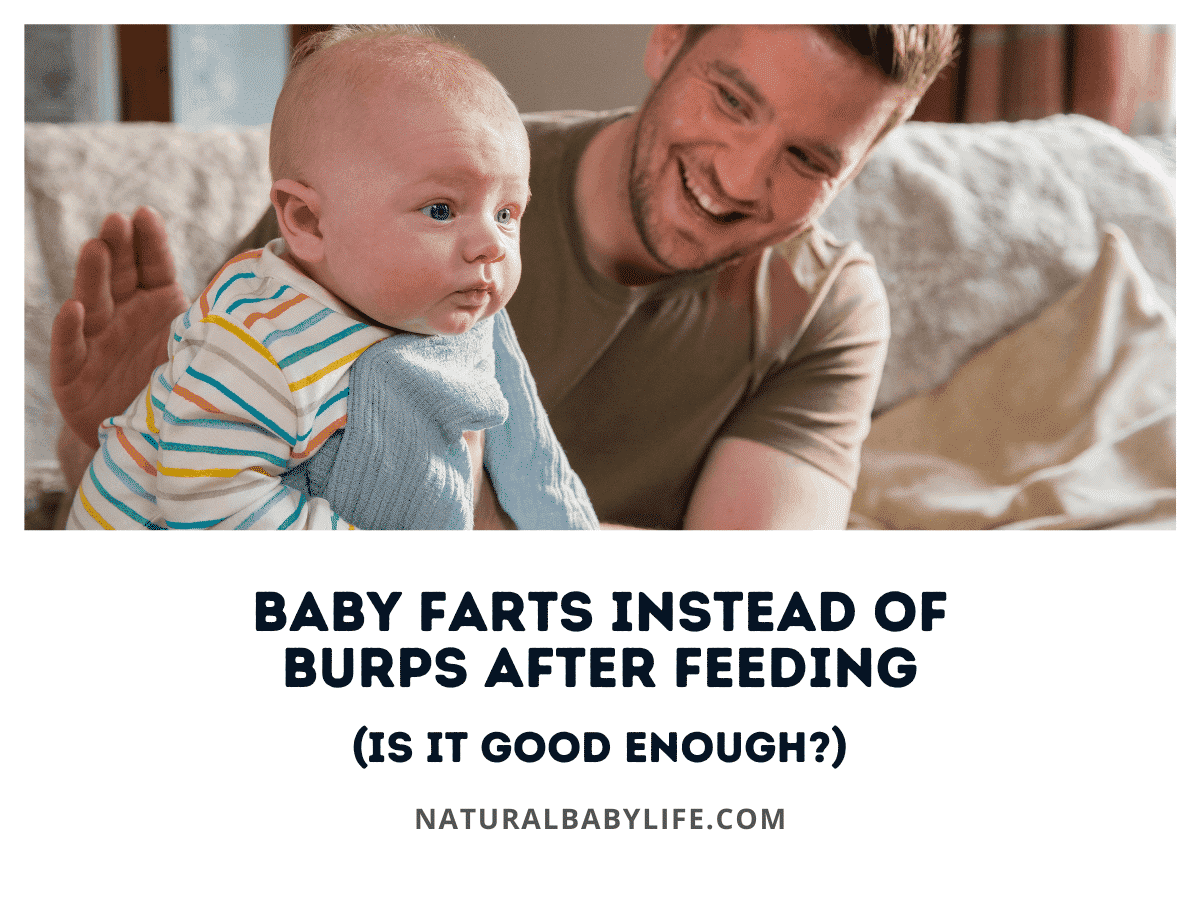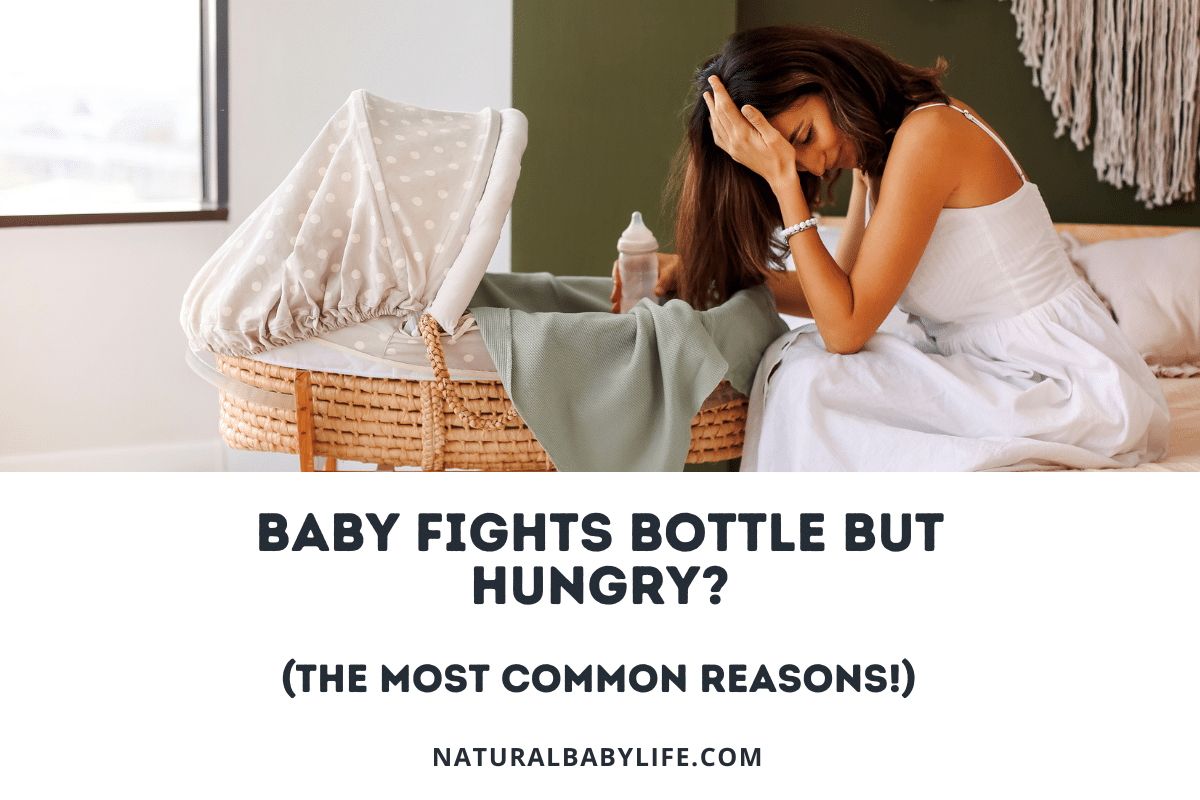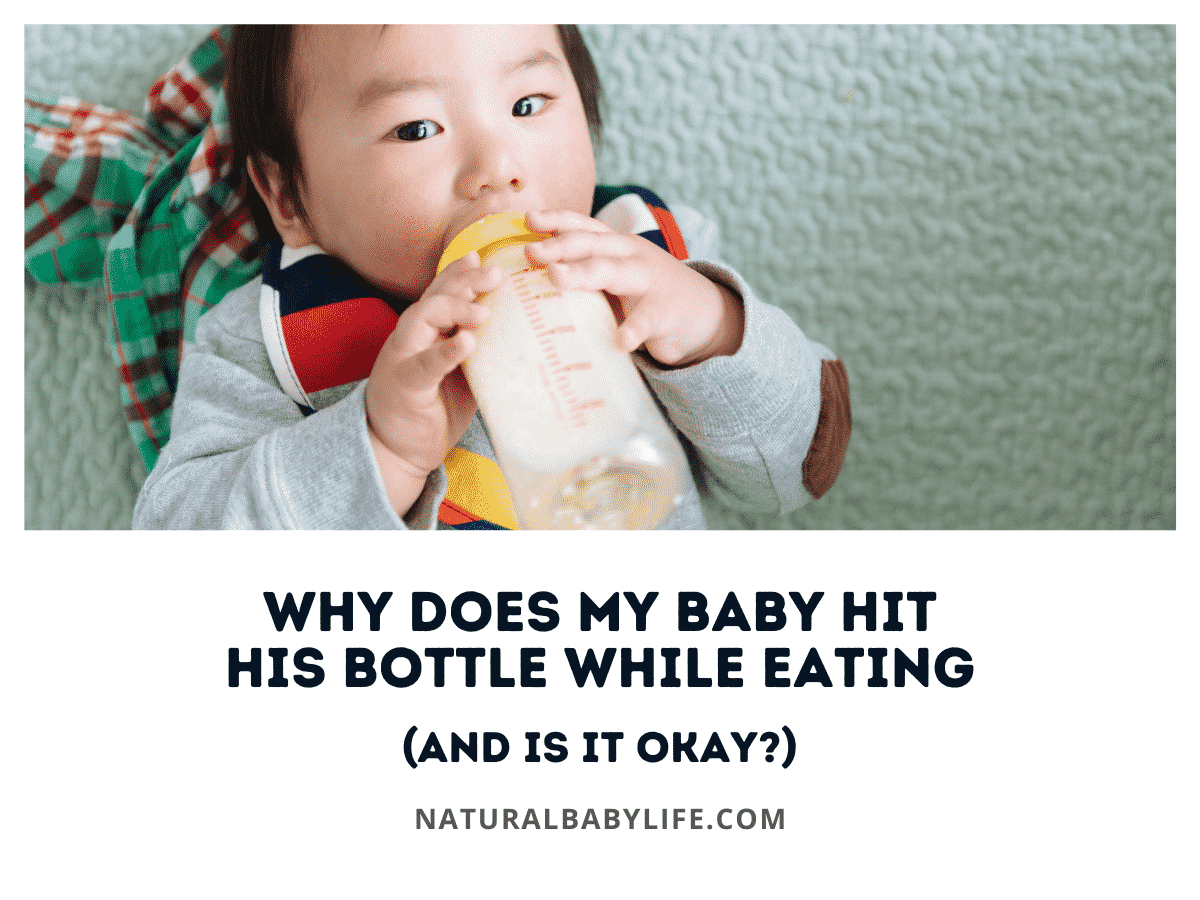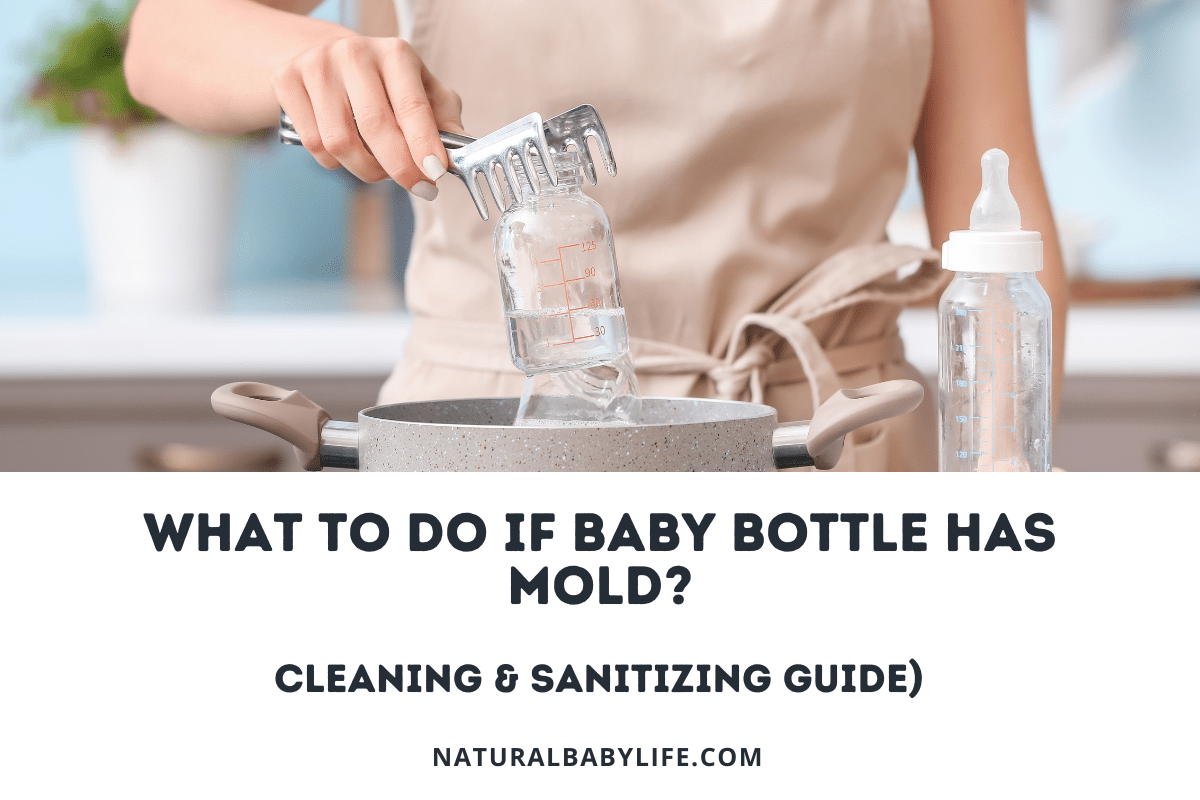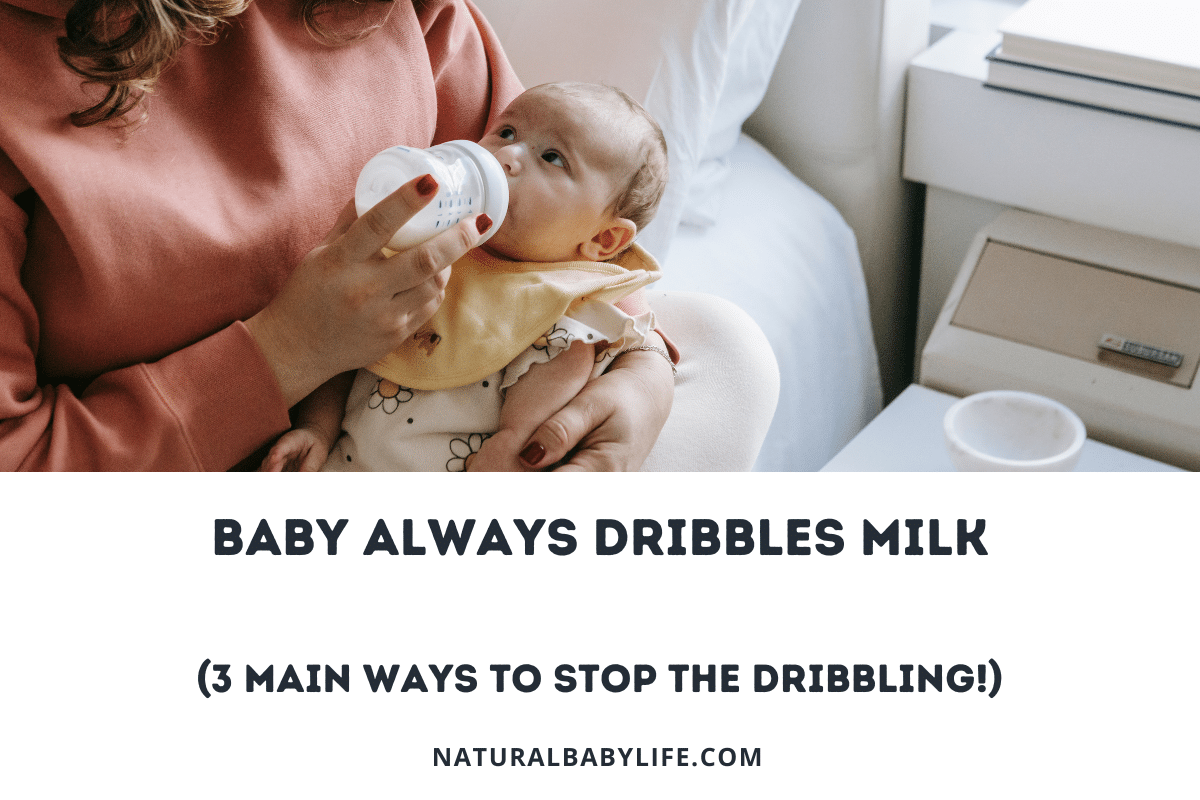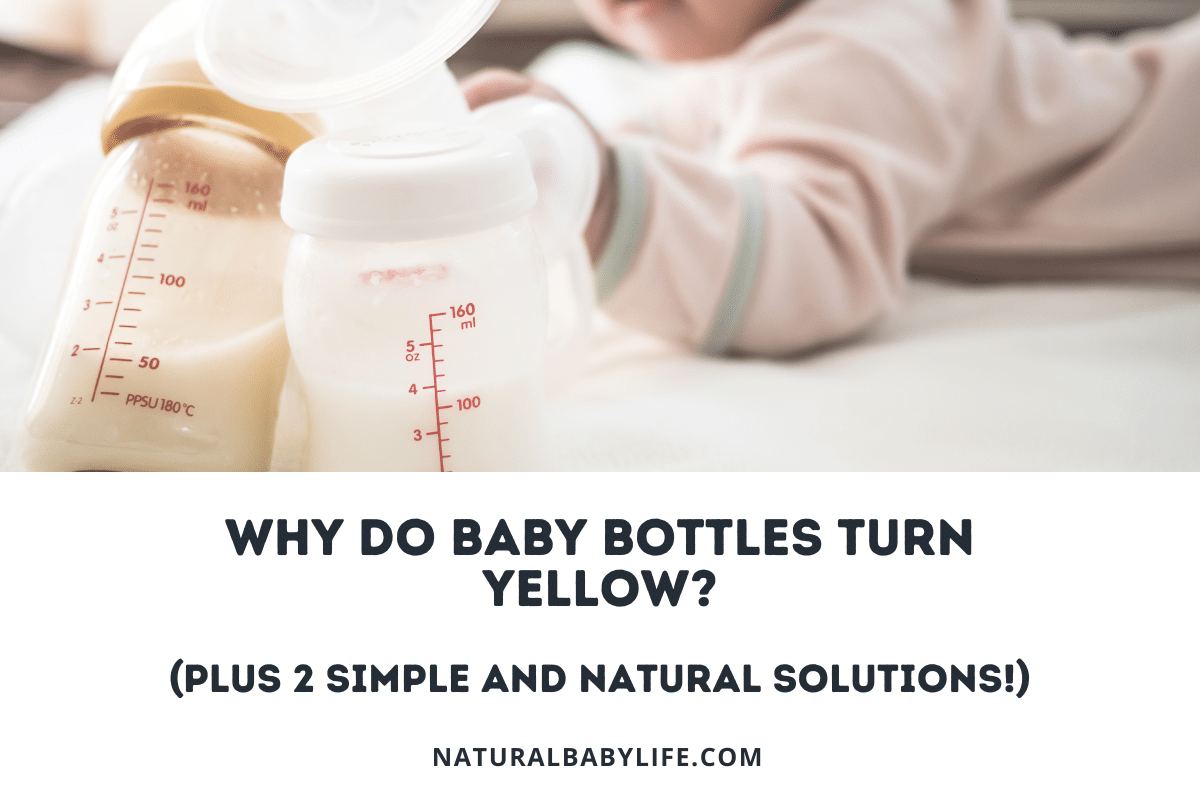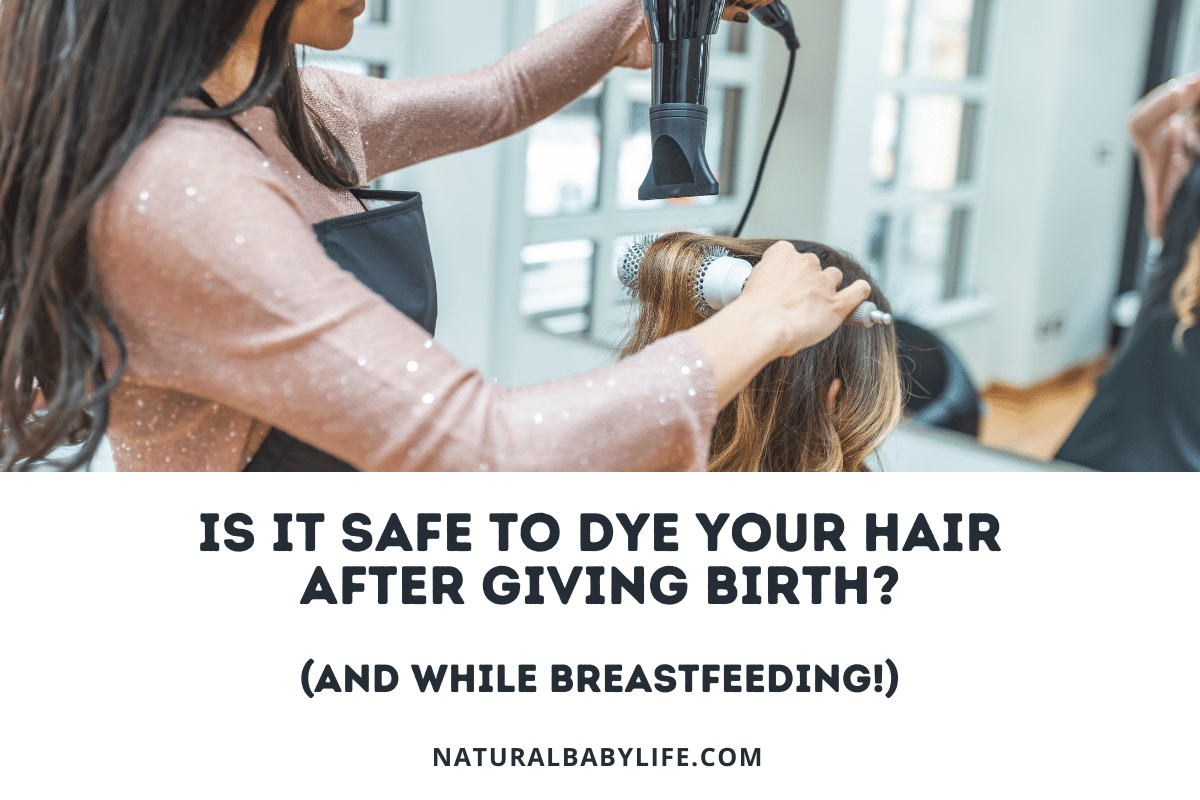So you’re feeding your baby and trying to get her to burp. Only, she doesn’t burp. But then she gets that sweet little smile on her face and you realize she’s farted. If your baby doesn’t burp after feeding, but farts instead, is that good enough?
Although they’re both essentially ways of getting air out of your body, burps and farts are not interchangeable, especially in the case of your baby’s digestion. When you’re burping your baby after a meal, the purpose is to get the air out of her before it moves into her tummy and makes her uncomfortable. Farting is the release of that trapped air.
Read on as we dive into the difference between a burp and a fart, and how you can help burp baby after feeding.
Table of Contents
Is it okay if baby farts instead of burps?
Babies burp a lot (with your help). And babies fart a lot. But they’re not really interchangeable. A fart is not a substitute for a burp.
When you are feeding baby, you want to make sure and burp her often so that she can get rid of the excess air she has swallowed while eating. This can happen regardless of whether she is breastfed or bottle-fed. Even if she gets so relaxed that she falls asleep while feeding, you will still want to try and burp her.
If she doesn’t get rid of that air, it can settle into her belly, causing her to wake up if she’s fallen asleep or just be fussy and uncomfortable.
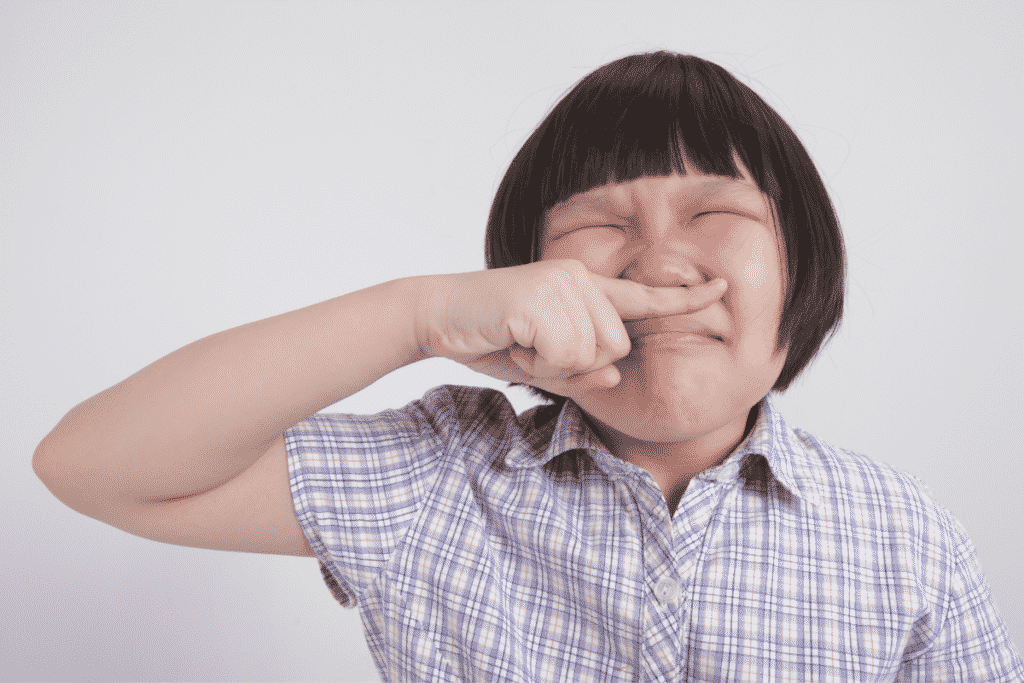
When burping baby, does a fart count?
When you are burping baby to release the air she may have swallowed while feeding, if she farts, it doesn’t count because it’s not really the same thing. In fact, the gas from a burp and fart come from two different places in your body.
When baby eats, her body takes in oxygen, nitrogen, and carbon dioxide. When you burp her, most of this gas gets released. If she doesn’t burp it out, it can travel down into her digestive system, causing her to fart and have indigestion, ultimately making her uncomfortable.
Farts come from the intestines. When baby eats, the nutrients are digested and absorbed into her body. Good bacteria in her gut breaks down anything left, which creates gas that gets released as a fart.
Do babies get gas from not burping?
The reason we burp babies after eating is to help release some of the excess air she may have swallowed while feeding.
If baby doesn’t get rid of that air through a burp, she may end up getting uncomfortable as the air moves through the intestines, ultimately causing gas.
Is burp gas the same as fart gas
Burp gas is not the same as fart gas since they come from two different places in the body.
Burp gas is helping to release air that’s been swallowed, while fart gas develops in the gut, and is more likely to have a smell to it.
If it helps, you can think of burps as coming from the top half of your baby, and farts as coming from the bottom half. Basically, burps are air that has gone in through your little one’s mouth and nose, but hasn’t passed through her digestive system yet.
Farts are air that has become trapped, picked up some gut bacteria, and worked its way out through your little one’s bottom – usually after causing her pain or discomfort.
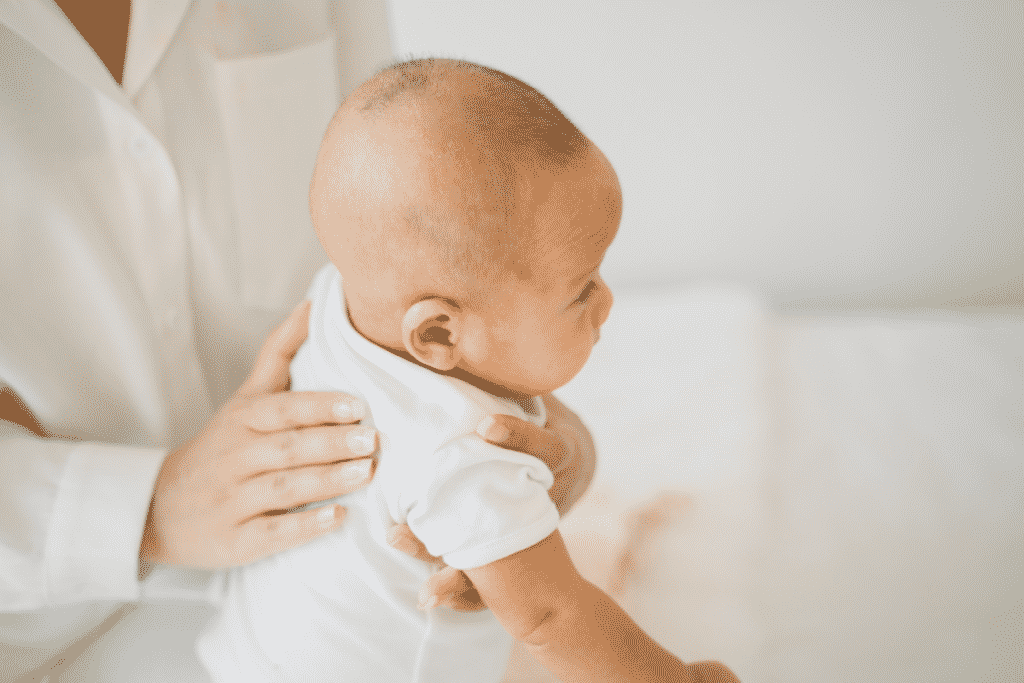
Why should babies burp after meals
It’s important to try to get baby to burp after each meal. This is because babies tend to swallow air while feeding, and burping helps get rid of the air.
If baby doesn’t get burped often, she can swallow too much air, making her spit up and become uncomfortable and gassy.
If you’re using a bottle, you should ensure that there’s not
Burping baby after feeding
When baby is feeding, is she starts to seem fussy, take a break to burp her.
Then, you can start feeding her again. You’ll want to try and burp her every 2 to 3 ounces if bottle-fed or each time you switch breasts if breastfed.
If you are struggling to burp your baby after feeding there are a few different positions you can try:
- Sit upright with baby against your chest – In this position, you want baby’s chin to rest on your shoulder while you support her with one hand. Use your other hand to gently pat baby’s back.
- Hold baby sitting up, in your lap, or across your knee – Use one hand to support baby’s chest and head, cradling baby’s chin in the palm of your hand. Place the heel of your hand on baby’s chest, making sure to grip baby’s chin, not her throat. Pat baby’s back with your other hand.
- Lay baby on your lap on her belly – Make sure baby’s head is higher than her chest while supporting her head, and gently pay baby’s back.
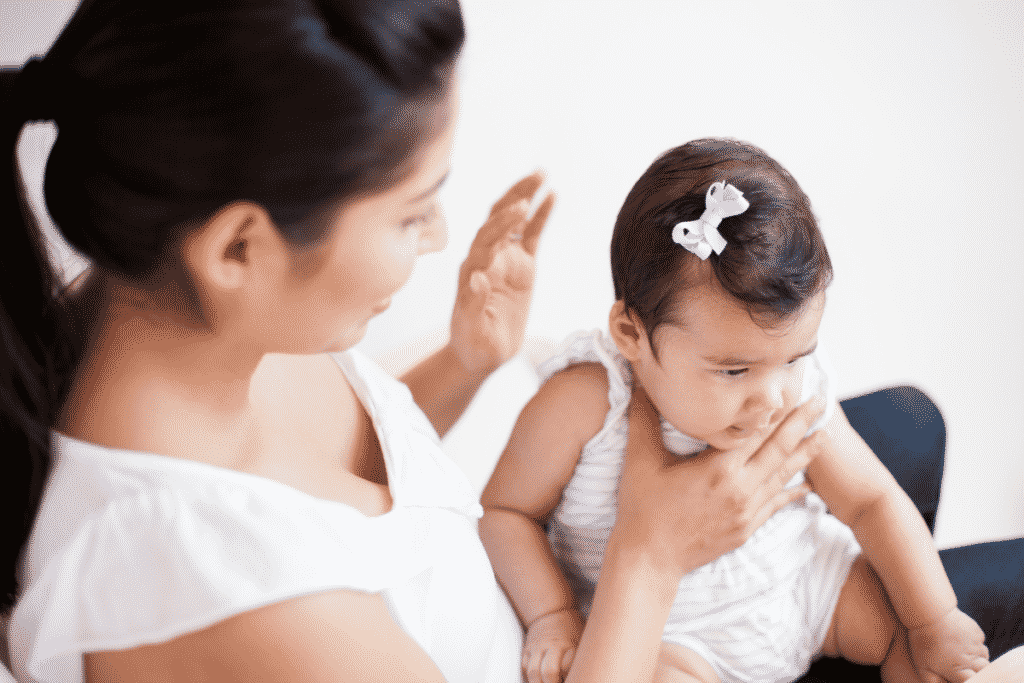
Burping sleeping baby
Oftentimes, babies get so relaxed while eating that they fall asleep. It’s still a good idea to try and burp baby so that she doesn’t wake up fussy or uncomfortable.
You will essentially burp a sleeping baby the same way you would if she were awake. The only difference is that you may be a bit slower about it so you can try to help her stay asleep.
You may find that a particular position is gentler on baby, which will be the best one to try and do while she’s asleep.

